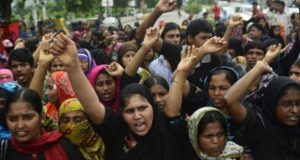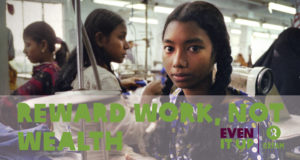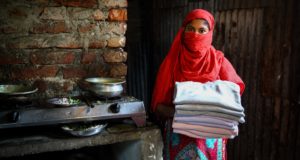Although Bangladesh has made remarkable recent strides like building green factories and meeting stringent safety standards, garment workers here are still paid one of the lowest minimum wages in the world.
Read More »Top CEOs earn more in 4 days than a Bangladeshi worker’s life earnings
A CEO from one of the world’s top five global fashion brands has to work for just four days to earn what a garment worker in Bangladesh earns in his entire life, non-profit organization Oxfam International revealed in a report on Monday.
Read More »Brands should take more control of supply chains to fix labour exploitation
Worker exploitation is rampant in the global fashion industry, according to countless investigations, studies and reports. So why haven’t fashion brands cleaned up their acts? Even if brands want to be part of the solution (as they are frequently asked to be) they are hindered by the current legal system. The problem is if brands are to eradicate labour exploitation, they must take more control of their supply chains. But if they take more control over their supply chains, they open themselves up to the risk of tremendous legal liability.
Read More »Australian fashion brands urged to end worker exploitation
Just four cents from every dollar Australians spend on clothing makes it back to workers enduring “horrific” conditions in garment factories, a new report has found. The report adds to pressure on Australia’s big clothing retailers, including Kmart, Big W, and Target, to act faster on their ethical sourcing programs.
Read More » CPD RMG Study Stitching a better future for Bangladesh
CPD RMG Study Stitching a better future for Bangladesh



